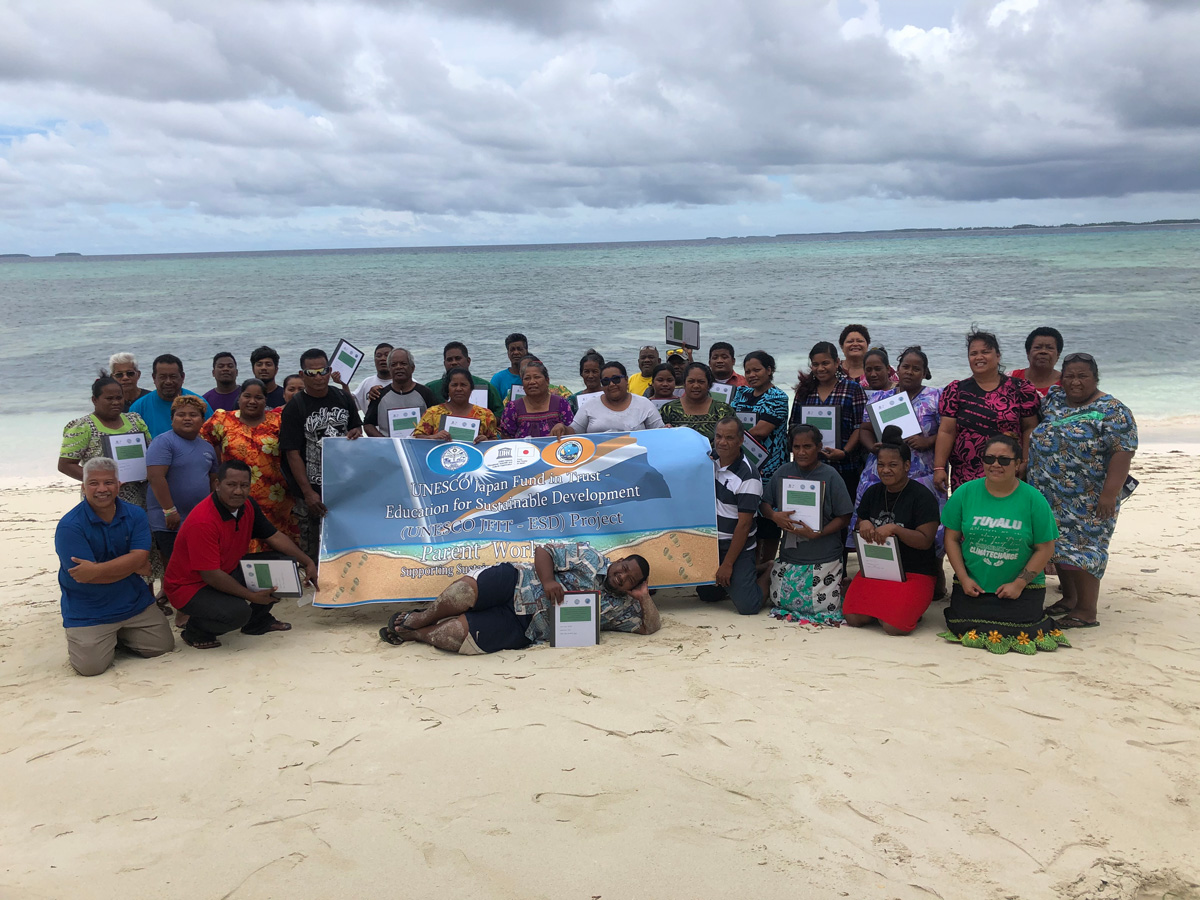Related News

The UNESCO Japan Funds In Trust Early Childhood Education-Education for Sustainable Development (UNESCO JFIT ECE-ESD) project was led by the Public Schools System in the Republic of the Marshall Islands, with technical support from Dr. Kelesi Whippy of the University of the South Pacific Marshall Islands (USP MI) campus. The project outcomes aimed to capacitate teachers and parents in ECE settings beginning on Majuro and Arno Atolls, to relevantly integrate ESD activities in formal, non-formal and informal settings.
A series of ECE-ESD training workshops, facilitated by Dr. Whippy, encompassed both curriculum content and pedagogical approaches in formal education, non- formal and in-formal contexts. The training workshops were conducted consecutively in October and November, 2020 drawing a fair distribution of participants based on gender with 85 teachers and 63 parents from 20 different ECE contexts.
The training workshops for parents and care-givers had focused on strengthening their roles and responsibilities in promoting ESD learning through everyday life experiences.
“The importance of engagement with parents, community groups and NGOs in this work was emphasized to ensure that the whole community is working towards developing the young RMI learner, holistically”, Dr. Whippy states.
Stakeholders with links to and who are in close association with ECE namely teachers and educators, administrators, policy makers, Ministry of Health and Human Services (MOHHS), Women United Together Marshall Islands (WUTMI) and the Marshall Islands Council of Non-Government Organizations (MICNGOs) were part of the initial consultation as well as the training workshops. An identification process of cognitive as well as non-cognitive skills unique to the RMI young learner led to the development of two sets of learning materials or Modules for teachers and parents. Both documents form a two-book compendium aimed at promoting the enhancement of cognitive and non-cognitive skills in young learners towards strengthening knowledge, applications and assessment of ESD.
Dr. Whippy reiterates that the learning modules and tools were constructed based on feedback received from a wide consultation workshop with stakeholders on prioritized skills and values which are deemed important for sustainable living in the context of the Marshall Islands.
She adds, “Although implicit in the curriculum, non-cognitive skills which are situated in children’s everyday life experiences such as working together to improve health and well-being for instance, improving clean water supplies and food security on the island atolls through kumit, togetherness; bok kunaad, participation; kijenmej, tolerance and kauteej, respect for others, including the environment and oneself, are neither addressed through teacher pedagogical development nor embedded as part of the classroom learning resources.”
Consequently, strengthening collaboration ties between stakeholders in terms of enhanced community participation through the incorporation of the Marshallese indigenous understandings and cultural practices form an integral part of the ECE-ESD effort in the RMI.
It is envisioned that the practical suggestions for transformative ECE-ESD pedagogical innovation initiatives included in the Teachers’ and Parents’ Guides will assist to move national action plans pertaining to achieving the Sustainable Development Goals (SDGs) 2030 in general and SDG Target 4.7, in particular.
Published in November 2020 on UNESCO ECE-ESD Program in RMI